The World in 2016 – From Baghdad to Kigali and Manila to Shanghai, IBTimes UK covers the globe
IBTimes UK presents its top reports from journalists who have been far afield in 2016.
Christian militia taking on Isis: 'They burned our churches, desecrated our monasteries'
In December 2016, IBTimes UK reported from Iraq, where anti-Isis fighters were re-grouping during the battle for Mosul.
By Callum Paton in Baghdad
In the district of Hamandeya, Kildani said IS had doled out some of its worst punishment on the local Christian population as it carried out a scorched earth policy in the wake of its retreat.
Kildani said Sunni Muslim towns had been left relatively undamaged as IS moved back into the confines of Mosul in the face of the advance by Iraqi government forces. He described how in one Christian area virtually every house had been destroyed and the infrastructure left in ruins. A Muslim area just five-minutes' drive away had experienced significantly less destruction.
In Christian areas liberated by Iraqi forces, Islamic State iconoclasm has been discovered in churches and other places of Christian worship. At Mar Behnam, a 4th Century Monastery, irreplaceable sacred texts were burned and sculptures of the Virgin Mary were smashed. Monks' bedrooms were turned into jail cells.
Hundreds of Kildani's fighters, operating alongside mostly Shia Muslim paramilitary brigades which were raised to counter the expansion of IS, remain on the front in northern Iraq where the Popular Mobilisation Forces (PMF) have been battling to cut supply lines at Tal Afar, 80km east of Mosul.
Kildani returns fresh from a string of victories. The Babylon Brigade has participated in the liberation of the ancient Assyrian city of Nimrud and the Sunni town of Ali Rashsh. However, with 17 of his men killed in the campaign, he says the fighting against IS in Mosul has been the fiercest in the two-year long battle to expunge IS from Iraq.
IBTimes UK reporter Callum Paton travelled to Iraq to report on its developing war against Islamic State and the challenges it faces as the militant group's defeat appears imminent.
He visited Iraq's southern Shia heartlands including the cities of Najaf, Karbala and Kufa. He also interviewed officials in the capital Baghdad and visited the cities of Samarra and Tikrit, previously on the front lines of the battle against Isis.
In Ali Rashsh the Babylon Brigade found themselves cut off and nearly overrun by IS. The fighters were in the path of a relentless IS onslaught. "We were beseiged by IS militants. We held just one checkpoint and couldn't leave. So we were surrounded on all sides. In the course of 18 hours 14 suicide car bombs were directed at us," Kildani said.
The Babylon Brigade was formed in 2014 following a fatwa by the highest Shia religious authority in Iraq to defend the nation against IS expansion. Kildani believes if there had been no fatwa and the PMF had not been formed then IS would have taken control of Baghdad.
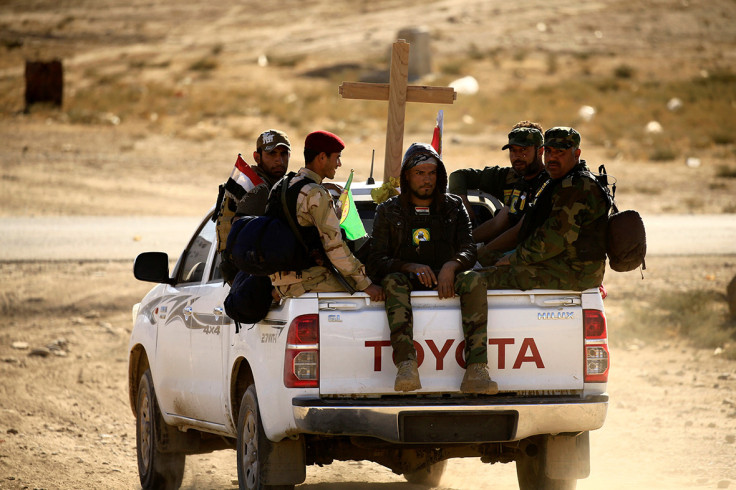
After fighting their way across Iraq through Anbar and Saladin province the commander describes the assault on Mosul as having always been the Babylon Brigade's main objective. The importance of liberating Iraq's second biggest city lies not just in its significance as IS' de-facto capital in the country but also because of its large Christian population.
A Christian unit in a predominantly Shia force, the Babylon Brigade is a strange hybrid. In the upper middle class home in Baghdad's al-Karada district that serves as its headquarters a crucifix hangs on the wall next to the PMF flag. When the Christian fighters go in to battle they carry wooden crosses on the back of their pickups while flying flags bearing the Shia insignia of the PMF.
Kildani said it makes little difference in the trenches whether the man fighting alongside you is Sunni, Shia or Christian but added that it will take time for the wounds inflicted by the Islamic State on the Christian community to heal.
"In the next one, one and half years very few families will return to their homes. There has been fear on both sides. We want to regain the trust between the Muslims and the Christians," he said
- Callum Paton travelled to Iraq courtesy of the Ramadhan Foundation in the UK and the Shrine Al-Ataba Al-Husayniya in Iraq.
Bloodbath in Manila as hundreds of 'drug pushers' hunted down by death squads
In July 2016, IBTimes UK was in Manila, covering the bloody aftermath of new president Rodrigo Duterte's war on drugs.
By Marianne Dardard in Manila
Lying in the middle of the road, Jennelyn Olaires hugs the dead body of her partner, refusing to let him go. By the time the forensic team reaches the area, there are already TV cameramen filming the scene, their powerful lights beaming down on Olaires.
Michael Siaron, 30, was waiting for passengers when he was gunned down after midnight by unknown men riding a motorbike in Pasay, close to one of Manila's busiest highways, famous for its 24-hour traffic. Near his body, a note reads: "I am a pusher, don't follow."
"Michael has been using drugs for one year but never was a dealer", Olaires screams at the cameras, her partner's blood still on her face.
The scene was a short ride for the reporters coming from another crime scene, also in Pasay, where unidentified suspect #91 was killed by unknown hitmen. The victim was found dead on the ground with a long streak of blood and a sign tagging him as a drug pusher and thief.
Hundreds have been killed in drug-related incidents since Rodrigo Duterte was elected president of the Philippines, almost two months ago. Meanwhile 120,000 reported drug offenders voluntarily surrendered to the police force. So far Duterte enjoys the highest trust rate in Philippine history.
Extrajudicial killings are not new to the Philippines; this is how media has been documenting casualties of the drug war, updating a "kill list".
That night, the body count started at 9.30pm, witnessed by reporters stationed at Manila central police station. The group got the first call only a few minutes after coming on duty. Redentor Manalang, 50, had just been murdered by unknown hitmen, while driving his tricycle. An epitaph was left behind: "Don't emulate me".
"One week ago, we had 18 dead, that was a very long night", says Patrick Adalin, a photographer for the local tabloid Abante. "Due to all ongoing operations, something is happening every single night."
"We are many more journalists than before", added Noche Cacas, working the graveyard shift for one year now. Cacas uses a talkie-walkie to do live reports for DZRH, a local radio station.
Based on official police data and local news reports, there has been on average 10 killed daily in drug-related incidents all over the country. As of 25 July, the death toll since 10 May – a day after Rodrigo Duterte was elected – has reached 430 according to The Daily Inquirer, 579 according to TV news channel ABS-CBN.
Of the 579 there were 377 killed by the police, 154 by vigilante groups and 48 victims of "salvage". Most of the time, salvage means wrapped in plastic and dumped.
"That death toll dwarfs the 68 killings of suspects that police recorded during anti-drug operations between January 1 and June 15", wrote Phelim Kine, Asia deputy director of Human Rights Watch. The police denied accusations of extrajudicial killings and said suspects ended up dead because they resisted arrest or fought back.
Since the beginning of the anti-drug campaign, 3,600 drugs offenders have been arrested and 120,000 reported drug offenders voluntarily surrendered, including 7,000 pushers.
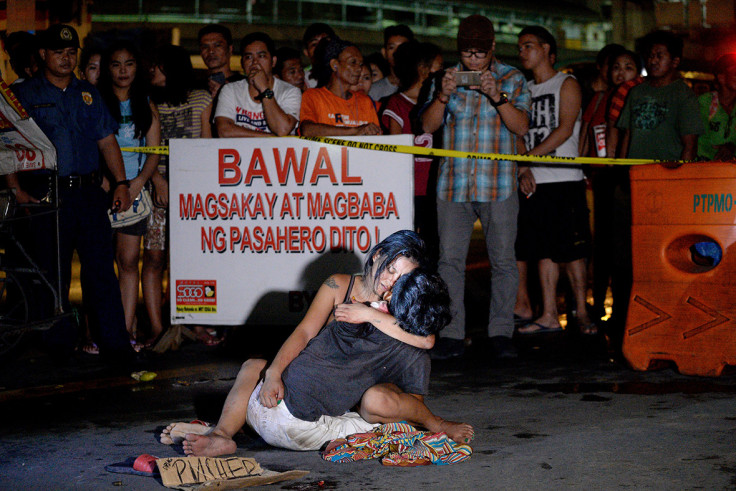
Officials claimed a positive effect on petty crimes and have even dubbed the phenomenon "the Duterte effect". Crime has decreased by 13% since Duterte won the presidency, according to the government, while petty crime – including bag-snatching at tourist areas – has also dropped significantly, the Philippines' presidential communications office claimed.
Yet concerns rise over the surge in killings of mostly poor people. The Commission on Human Rights recently launched a test probe on 103 cases, including 33 drug-related killings during a police operation. Enshrined in the country's constitution, the independent CHR looked into the summary killings associated with the 'Davao Death Squad' linked to Rodrigo Duterte, when he was still the mayor of the southern city. No clear evidence of his responsibility was revealed.
"The problem with this kind of killing is, we would never know who is more deserving to be killed, this pedicab driver even assuming he is a drug pusher or the persons who killed him. Worst, those who are killed die with their names tarnished as a drug pusher or a criminal. Never mind if it is true, but what if it is not true?" said one critic, Noly Sosteza, on Facebook.
In his first state of the nation address on Monday (25 July), President Rodrigo Duterte compared the photo to Michelangelo's Pieta : "And you are portrayed in a broadsheet like Mother Mary cradling the dead cadaver of Jesus Christ. To those who have done so, you are dramatising her."
Duterte said pushers should only blame themselves for being slain for their activities. Last month, he named publicly top drug dealers among high-ranking officials, forcing them to resign.
So far President Duterte enjoys the highest trust rate (91%) in the archipelago's history, according to the latest poll released by Pulse Asia. For most Filipinos, the new administration should prioritise economic issues, including antipoverty programs. The immediate address of criminality comes second (48% of surveyed).
An estimated of 1.3 million Filipinos are drug users and more than 99% of Metro Manila barangays (the smallest administrative division) are affected, according to the Dangerous Drugs Board. Metamphetamine or "shabu" is the drug of choice, imported by foreign cartels, now produced locally. It is also considered one of the most addictive substances.
"There will not be a let-up in this campaign against illegal drugs, promised Duterte during his speech to the Congress. "We will not stop until the last drug lord, the last financier, or the last pusher is put behind bars or below the ground if they so wish."
Behind the Great Firewall, China is winning its war against internet freedom
In April 2016, IBTimes UK reported from Shanghai, to uncover how China is changing under President Xi Jinping.
By Orlando Crowcroft in Shanghai
When Google announced in 2010 that it would cease self-censorship of search results in China in response to a Chinese hacking attempt against itself and 20 other US tech companies, plenty thought it was a bluff. So big as to be synonymous with the internet itself, the world watched to see how China would respond – Beijing, in true stubborn fashion, called it.
Six years later and Google services are still blocked in China, along with Facebook, Twitter, Instagram, YouTube and some of the world's biggest news organisations, including the New York Times. Even on the search engines it allows, the Great Firewall (GFW) censors news stories that show China or its leaders in a bad light, as well as references to events such as the 1989 Tiananmen Square Massacre.
Most recently it shut down coverage of the Panama Papers when it emerged that a number of Chinese leaders and their families were using offshore tax havens, including the family of Chinese President Xi Jinping. Although many Chinese were able to access news through virtual private networks (VPNs), for weeks all searches related to the country Panama – leak or otherwise – were blocked.
China has always censored the internet, but in many ways the spat with Google, which reached its nadir in 2014 when all Google services were blocked, was a watershed moment. Until then the situation had been a tug of war between tech companies and the government, but after the blocking of Google, Beijing made clear that it was its way or the (super) highway.
In the two years since, internet freedom in China since has gone from bad to worse. In March 2016, the government began blocking the VPNs on which thousands rely to bypass the firewall. Overnight businesses that had spent years developing ways around the firewall had to start again from scratch.
As such, while in London professionals may sit around trading small talk about football or the weather, in Shanghai it is about VPNs – which ones work, new products on the market, internet speeds and wifi. It is not just expatriates looking to get on Facebook either, Chinese citizens are equally hungry for new VPN products – indeed, some of the best programmes have been written by locals.
"The internet is the Achilles heal for most professionals and businesses in China – expats and locals alike. Many Chinese who have international businesses and tend to travel a lot, have also complained [...] so in a funny way the Chinese government is shooting itself in the foot by stifling the efforts of its own enterprises that are now going global," said a Hisham Youssef, an architect who has lived and worked in Shanghai for five years.
An entire industry has been built around avoiding the firewall. New VPN providers see surges in business as the government shuts down stalwarts. During IBTimesUK's visit to Shanghai one of the most popular proxies, Astrill, was targeted by the government and a new provider – which will remain nameless, to avoid it facing a similar fate – sprung up in its place.
The case illustrated two important facts: Firstly, that the Chinese government is aware that thousands of internet users in China are using VPNs to bypass the great firewall, but secondly – and more importantly – that if Beijing wanted to stop the use the VPNs it could. Indeed, most home internet connections are designed to reject traffic originating from outside of China, blocking almost all VPNs, while Wi-Fi cafes such as Starbucks often require customers have a Chinese mobile number to log in.
The reason the government doesn't, some believe, is because it knows that international firms rely on VPNs to survive. Beijing is therefore walking a tightrope between allowing enough freedom so that international business can still do what it needs to do, while maintaining its tight grip over information that its citizens – and those of other nations who reside in China – can access.
"Each new day is worse than the last," said Charlie Smith, co-founder of GreatFire.org, which monitors Chinese internet freedom and promotes ways around the firewall. "It is rare that sites get unblocked or uncensored, new sites get added to the blocked list and new domestic sites face increased censorship. The opposite never really happens."
It is impossible to gauge the effect that the draconian restrictions imposed by Beijing has on the Chinese economy, but anecdotally, many senior business people that live and work in China report that patience is running out.
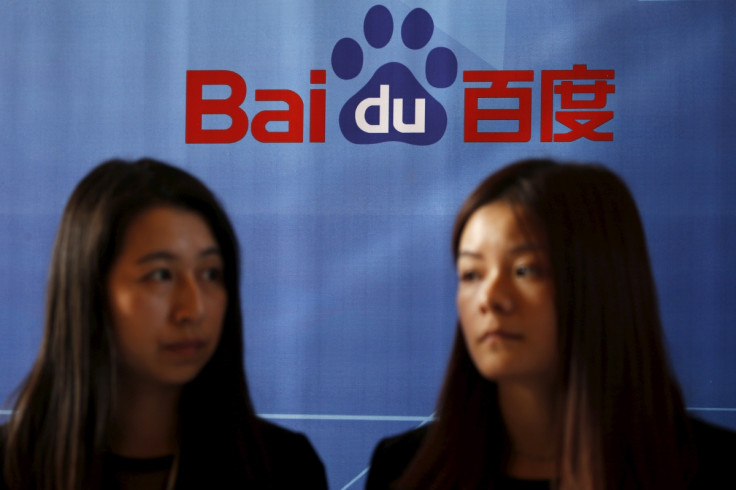
Unsurprisingly the Chinese authorities have little sympathy. In an editorial in April 2016 the state-controlled Global Times thundered: "Why does the Western media hate the GFW so much" before going to defend imposing restrictions on "a tiny number of foreign websites [so that] Western opinions cannot easily penetrate as ideological tools".
'Western media have published major political reports that concern China in recent years, trying to direct the attention of Chinese society and set the discourse agenda for us. The Great Firewall has snuffed out such intentions,' it said.
But there is a business case too: as China has blocked Google, so its own search engine, Baidu, has flourished. As China has blocked Facebook and WhatsApp, so its domestic messaging service – WeChat – has boomed. Meanwhile, Weibo has dominated the Chinese market since the banning of Twitter.
It is not only direct competition either. Just take the case of Uber, which has spent millions if not billions trying to penetrate the Chinese market but faced a coalition of domestic, state-backed rivals that have left it grasping for business, so foreign firms operating in China have had to deal with substantial restrictions that have allowed their Chinese rivals to flourish.
In April, the US government first described Chinese internet censorship as a trade restriction in its National Trade Estimate Report arguing: "Over the past decade, China's filtering of cross-border internet traffic has posed a significant burden to foreign suppliers, hurting both internet sites themselves, and users who often depend on them for their businesses."
But while it may be a tantalising – if ultimately futile – prospect to see the US government making a business case for freedom of expression in China, GreatFire's Smith does not hold much stock in the argument. Plenty of international tech giants that have been willing to jump through hoops for Beijing – Apple, for example – have been allowed to flourish in China despite local rivals.
"If foreign companies are completely complicit with censorship and are willing to share sensitive data with the authorities, then they are welcome to do business in China – see Apple and LinkedIn. If the authorities wanted a domestic company to succeed they would have shut Apple out of China long ago, despite Apple's willingness to do whatever the authorities ask of them," he said.
With Xi – a far more hands-on and authoritarian figure than his predecessor, Hu Jintao – at the helm it is difficult to imagine that Beijing will do anything but tighten its grip on the internet in the coming years. GreatFire statistics show that China now blocks 25% of all internet sites compared to 14% since before Xi took power, and his reign has come alongside a huge crackdown on freedom of the press.
"Xi Jinping didn't build the Great Fire Wall but he has fortified it so that today it is harder for Chinese people to access information originating outside the country," said Susan Shirk, chair of the 21st Century China programme at University of California in San Diego.
Given that China has more than proven its stubbornness on the issue of internet freedom – snubbing the biggest global tech companies and potentially billions of dollars in investment they would have brought with them – few are optimistic that things will get better in the short term. But Shirk pointed to a growing anger on Chinese social media about the internet restrictions in 2016.
"Based on their online reaction to the tightening censorship under Xi, the Chinese public is frustrated and angry about it. There are hints that some high-level officials also believe that the media and internet censors have overdone it and caused more problems than they've solved," Shirk said.
In denying the Chinese people the internet access and freedom that all but a fraction of the world now possesses, China's leadership may have finally pushed its people too far.
Honorine Uwababyeyi: Meet the Rwandan genocide survivor helping children of rape victims
In April 2016, IBTimes UK reported from Rwanda twelve years after the genocide to find a country and a population still scarred by the violence.
By Ludovica Iaccino in Rwanda
Rape was widely used as a weapon of war in Rwanda during the 1994 genocide against the ethnic Tutsi population. Not only were an estimated one million people – including women and children – brutally massacred in just 100 days, but HIV-positive Hutu men were also encouraged to rape Tutsi women so that they would be infected with the virus.
Many of the youths who were born out of rape do not know their fathers and have lost their mothers due to HIV. In other instances, they were rejected by their mothers and relatives due to the taboo surrounding the circumstances in which they were conceived.
Labelled as "sons of Interahamwe" – a Hutu paramilitary organisation that contributed to the genocide – stigma, discrimination and a lack of education and opportunities still affect these youths, Rwanda's new generation.
Honorine Uwababyeyi's ordeal during the genocide
"I had gone to Kigali to visit some relatives. On 6 April, when the plane carrying the president was shot down, we heard berets shooting, but we thought it was some demonstration. The day after people suddenly started killing others, they said we had to die because the president had died," Uwababyeyi explained.
"They asked us [for] identity cards and when they saw we were Tutsi, they lined us up and they started killing people. I was in the line but at some point I don't know what happened, I fainted and they thought they had killed me. I woke up among dead bodies and I escaped."
While fleeing, Uwababyeyi met a family who hid her in a water drum for over a fortnight. But then the perpetrators of the genocide – often referred to as génocidaires – found her and took her to a building where they started killing elderly people.
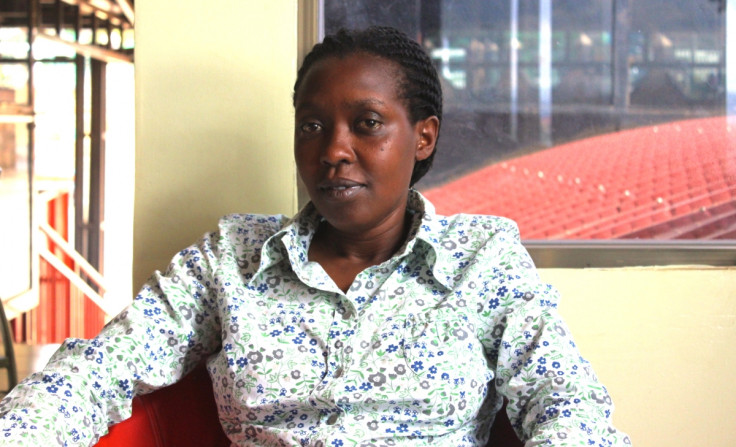
"They cut a woman's womb and took the baby out, I can never forget," she said. Uwababyeyi managed to escape by jumping out of a window after the killers had briefly left the premises. She hid in the bushes, but the génocidaires found her again. This time however, one of the killers – a policeman – recognised her as the sister of a boy who had been very good to him, so he decided she would live with him.
The policeman and his family killed Tutsis every day. "When they came back home, I had to wash their clothes, full of water, in the basin and then they forced me to drink the water full of blood," Uwababyeyi explained. She was also subjected to several other psychological tortures.
When soldiers from the Rwandan Patriotic Front (RPF) approached Kigali, Uwababyeyi was forced to flee together with the Hutu family and thousands of other genocide perpetrators who were seeking shelter in the Democratic Republic of Congo (DRC).
"While we were fleeing I realised that if I went back, I could meet RPF soldiers. So I left, and one day later one RPF found me and saved me. Unfortunately, I don't know who he is."
Young people are victims of a genocide they did not commit
Honorine Uwababyeyi is a réscapé, a survivor of the genocide. She was eight when the massacres against the Tutsis ravaged the nation and she lost most of her family.
After seeing the effects of the violence on herself and other youths, she decided she wanted to help.
In 2013, Uwababyeyi founded the Hope and Peace foundation, which todays provides psychological support to 417 boys and girls who were either born out of rape, survived the genocide, or whose parents committed genocide-related crimes.
"These youths are victims of the genocide without having taken part in it. Most of them have an identity crisis, they do not have relatives and are not accepted," Uwababyeyi told IBTimes UK.
"There is suspicion among youths born out of rape and those whose parents committed genocide crimes. They don't trust each other and some of them still share genocide ideologies," she continued.
"This is why it is important that they spend time together, so they can wipe away hatred. It will take years to defeat this ideology and psychological and financial support are important, because otherwise people are hunted by the past while the rest of the country progresses.
"People's past should not affect their whole lives. My message to the wold is: As long as you live, you are strong. Even when life puts you in front of challenges, you must have hope and things will change."
Read more about the genocide here.
To live and die in Rojava: How an Australian swimming champion gave it all to take on Isis in Syria
In November 2016, IBTimes UK met the family of Reece Harding, a 23-year-old former swimming champion who gave it all up to fight ISIS in the deserts of northern Syria.
By Farid Farid
In June 2015, Michele and Keith Harding took a call from their son in eastern Syria. Reece, 23, a former swimming champion who had gone to fight Islamic State (Isis) alongside Kurdish fighters two months earlier, said he was thinking of heading home to Australia's Gold Coast. A few days later, he was dead.
"He'd never been a soldier, never been a fighter. Even the guys over there told him, 'What are you doing here?' because they're mainly ex-military guys. But Reece was quick to pick up things, he has a steady head" Michele told IBTimesUK from the Harding family home in the Gold Coast.
A state swimming champion at the age of 13, Reece had worked as a roofer and hotelier before he decided to go to Erbil, in Iraqi Kurdistan, in April 2015 and make his way to Rojava, the Kurdish enclave in Syria, where the Kurdish People's Protection Units (known as the YPG) were waging war against IS.
He had been recovering from a workplace injury at home when he saw horrific footage emerging from Syria of IS beheadings and other atrocities. He told his parents that he was going to Nepal to help out with the earthquake recovery effort, but instead travelled to Syria.
As part of the YPG's specialised sabotage squad, Reece was tasked with dismantling booby traps and improvised explosive devices in Kurdish villages. He was around 21 miles away from Raqqa, the IS de-facto capital, when he stepped on a landmine on 27 June 2015.
"When you hear your son has been blown up, you think: 'It's got to be a mistake, it can't be Reece'," she said. "Shrapnel had torn through his body on the right hand side of it but [apart from that] he looked perfect."
Keith and Michele became experts on the YPG and their foreign fighters division, known as the Lions of Rojava, during the long waits between phone calls from Reece from Syria. Their son was particularly angry when, in June 2015, the then-Australian prime minister Tony Abbott introduced a law that stripped dual-national Australians of their citizenship for engaging in combat with terrorist groups.
The plan was aimed at targeting Australians who had been fighting with Islamic State, who numbered more than 100 and faced up to 25 years in prison. It also encompassed others involved with military groups such as the People's Protection Units (YPG).
Last month, Reece's combat-unit friend Ashley Dyball openly defied Australian Federal Police saying that he should not be arrested for volunteering with the Kurdish militia, who have been on the front lines against IS.
Michele and Keith have also been raising awareness about the Kurds' tricky political situation in Turkey and in Syria, condemning the Australian's government stance of criminalising those who support the Kurds on the ground.
"I thought the West was supposed to be the good guys, and I look at things that we do and we are not good at all. I don't have a good opinion of the United States, the United Kingdom and Australia – they are all complicit", Michele said
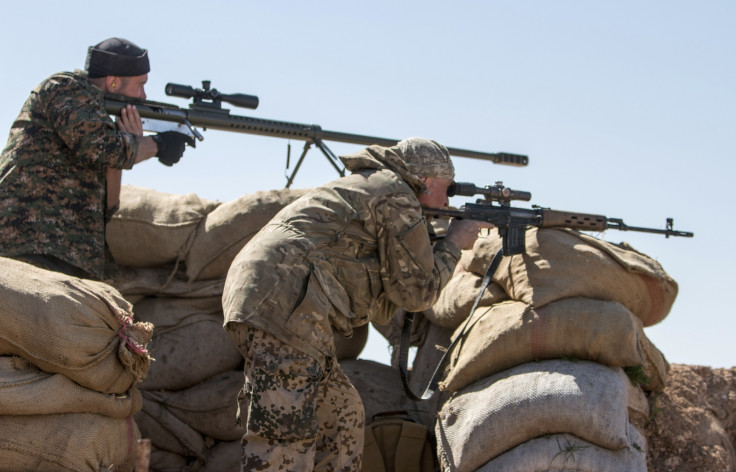
YPG forces have been an integral part of a western backed alliance to fight the notorious terrorist group in Syria while the Kurdish peshmerga have been heavily engaged in the current fight to completely liberate Mosul, Iraq's second largest city, from IS's grip.
But Turkey has targeted YPG units in north-eastern Syria, arguing that the group is an extension of the Kurdish separatist movement Kurdish Workers' Party (PKK). Turkish president Erdogan accused European nations this week of "abetting terrorism" by supporting the PKK. Keith Harding would like to see the PKK de-listed internationally as a terrorist group.
In October 2015, Michele herself went to Rojava to map her son's final footsteps and meeting with YPG soldiers. She retrieved his belongings including a bag with two T-shirts that she had bought for him. Michele said that the trip helped her understand why her son gave his life.
"Reece taught me that it's all our problem, that's why he went," she said. "This is where your kids end up teaching you."
His parents continue to keep their son's memory alive with regular social media postings and talks given at Kurdish events. They also regularly go to visit his grave, minutes away from their home, surrounded by lush green scenery. It gives them a sense of peace.
Keith still feels pangs of anger for losing his son at a young age: "We have mixed emotions because we still want him here," he said. "We are terribly proud of him".
© Copyright IBTimes 2025. All rights reserved.




















